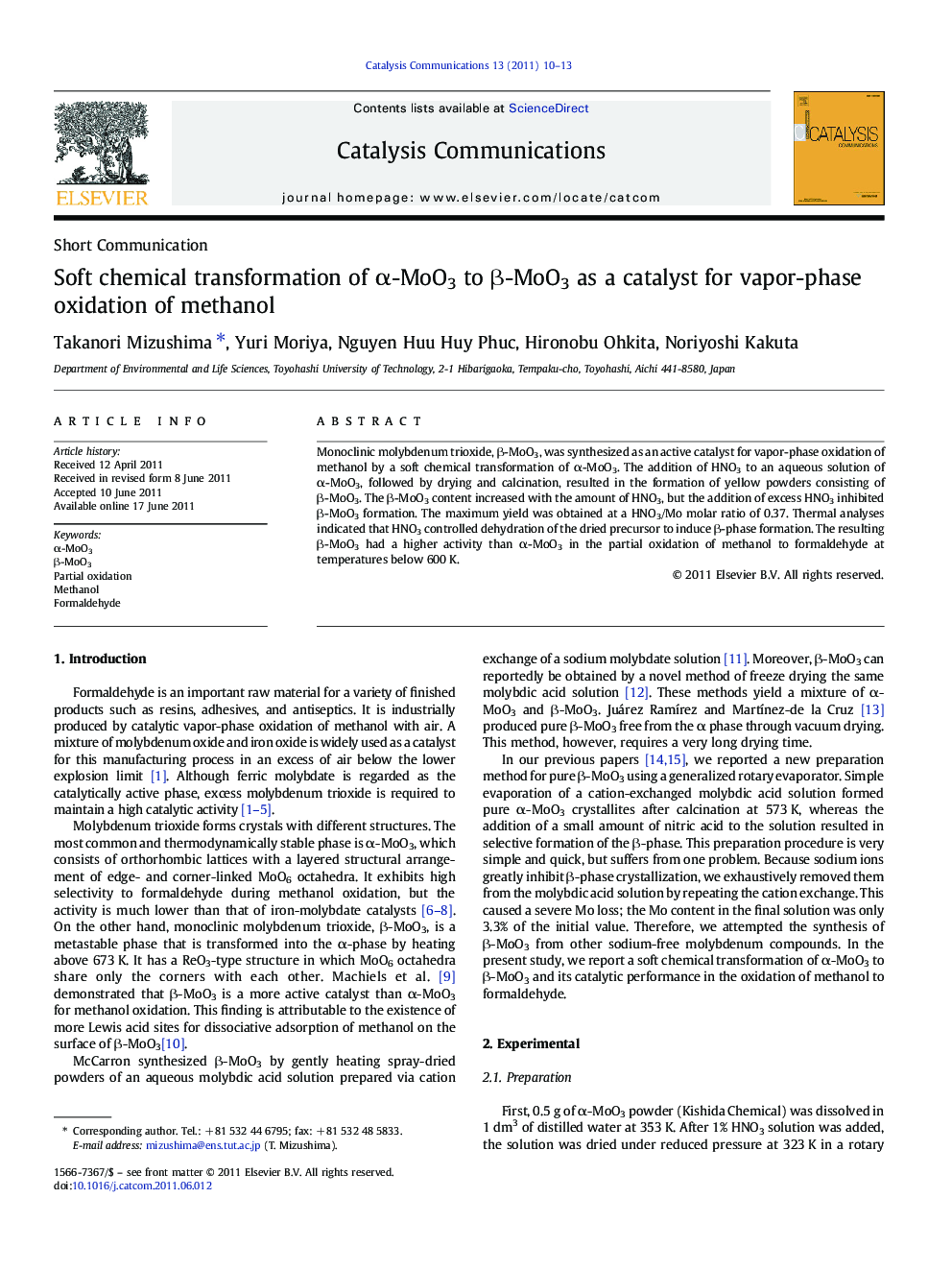| Article ID | Journal | Published Year | Pages | File Type |
|---|---|---|---|---|
| 50222 | Catalysis Communications | 2011 | 4 Pages |
Monoclinic molybdenum trioxide, β-MoO3, was synthesized as an active catalyst for vapor-phase oxidation of methanol by a soft chemical transformation of α-MoO3. The addition of HNO3 to an aqueous solution of α-MoO3, followed by drying and calcination, resulted in the formation of yellow powders consisting of β-MoO3. The β-MoO3 content increased with the amount of HNO3, but the addition of excess HNO3 inhibited β-MoO3 formation. The maximum yield was obtained at a HNO3/Mo molar ratio of 0.37. Thermal analyses indicated that HNO3 controlled dehydration of the dried precursor to induce β-phase formation. The resulting β-MoO3 had a higher activity than α-MoO3 in the partial oxidation of methanol to formaldehyde at temperatures below 600 K.
Graphical abstractFigure optionsDownload full-size imageDownload as PowerPoint slideHighlights► β-MoO3 was synthesized by a soft chemical transformation of α-MoO3. ► The key to the synthesis was the addition of HNO3 to an aqueous solution of α-MoO3. ► HNO3 controlled dehydration of the dried precursor to crystallize β-MoO3. ► The resultant β-MoO3 was highly active in the low-temperature oxidation of methanol.
